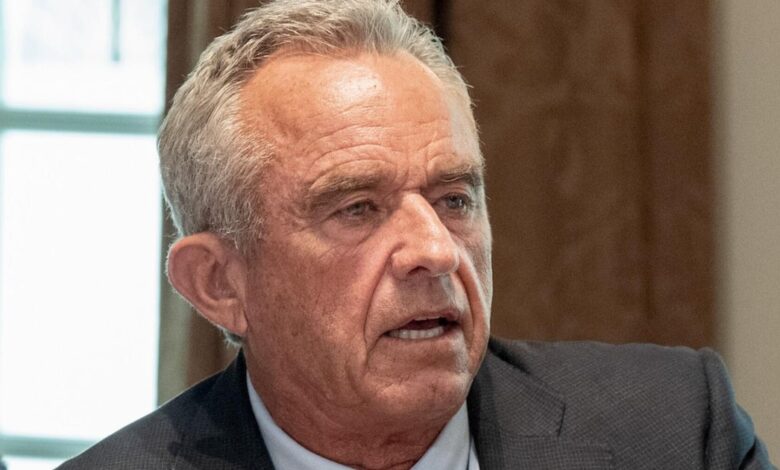RFK Jr. says people shouldn’t take his medical advice when asked about vaccines at hearing

Health and Human Services Secretary Robert F. Kennedy Jr. faced questions about vaccines during a House hearing, where he was asked if he would vaccinate his children against measles today. Kennedy responded with a hesitant “probably,” emphasizing that he does not believe people should seek medical advice from him. He reiterated this stance when pressed further, stating that he did not want to give advice to others.
During the hearing, Kennedy also declined to answer whether he would vaccinate a child against chickenpox and polio. His comments come at a time when the United States is grappling with a significant increase in measles cases, particularly in West Texas where two children have tragically lost their lives. The outbreak in Texas has led to 709 reported cases, contributing to the nationwide total exceeding 1,000 cases across 30 states. Health officials have noted that the majority of those infected were either unvaccinated or had an unknown vaccination status.
Kennedy’s statements on vaccines have been met with scrutiny, as he has a history of casting doubt on their efficacy despite overwhelming evidence supporting their effectiveness in preventing serious illnesses. However, in a recent interview with CBS News, Kennedy publicly endorsed the measles vaccine for the first time since assuming his role as HHS secretary. He emphasized the importance of individuals receiving the vaccine while maintaining that government mandates should not be imposed.
Despite his previous skepticism, Kennedy’s acknowledgment of the vaccine’s efficacy signifies a shift in his stance on vaccinations. It is crucial for public health officials to continue promoting the benefits of vaccines and dispelling misinformation to combat the spread of preventable diseases. The ongoing measles outbreak serves as a stark reminder of the importance of vaccination in protecting individuals and communities from harmful infections.
As the debate surrounding vaccines continues, it is essential for individuals to consult reputable sources and medical professionals for accurate information on the benefits and risks of vaccination. Public health authorities play a critical role in educating the public and promoting vaccine uptake to safeguard the well-being of the population.





